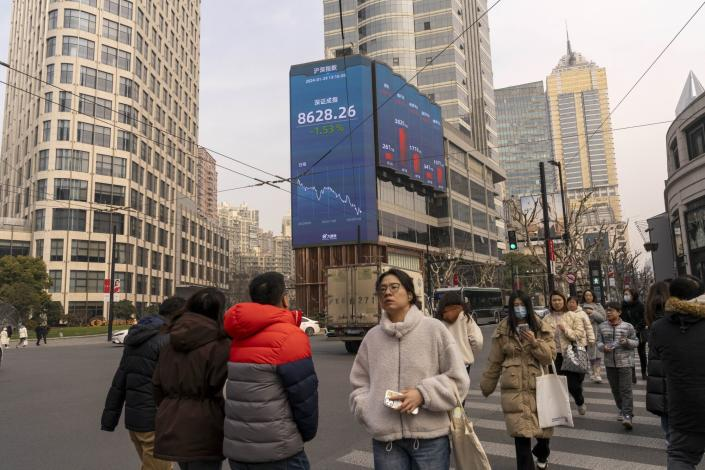The Chinese stock market suffered another blow on Wednesday, as a key index erased all the gains it had made since late January, when authorities pledged more forceful measures to support the market. The CSI 300 Index of mainland shares fell as much as 1.3%, reflecting weak demand and a faltering recovery in the world’s second-largest economy.
The market sentiment was further dampened by a report that showed China’s factory activity contracted for a fourth month in January, adding to the concerns over the impact of the property crisis and the Covid-19 pandemic. The official purchasing managers index, or PMI, rose slightly to 49.2 in January from 49.0 the month before, but remained below the 50-mark that separates expansion from contraction.
Investors were also disappointed by the lack of further details about the stabilization fund that was expected to inject 2 trillion yuan ($278 billion) into the market, as well as the effect of the central bank’s decision to cut banks’ reserve requirement ratio. Some analysts said that the government’s support measures were not enough to address the structural issues and the growth challenges facing the Chinese economy.
“Any minor rally driven by piecemeal news of government support is likely to be met by more selling,” said Vey-Sern Ling, managing director at Union Bancaire Privee in Singapore. "It’s not clear whether China’s structural issues can be resolved and how determined the leadership is in prioritizing growth."
The Chinese stock market has lost more than $6 trillion in market value since a peak reached in 2021, making it one of the worst performers in the world. The selloff has also affected other markets, such as Hong Kong, where the Hang Seng Index dropped 1.5% on Wednesday, and the U.S., where tech giants slid in late trading after earnings reports.




Comments
Post a Comment